open health
See the following -
An Argument for Standardized Reference Terminologies
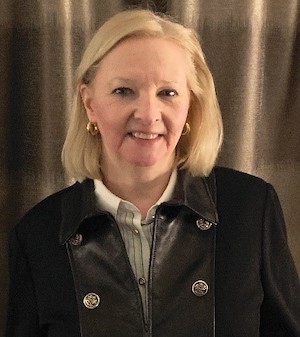 As a National Institutes of Health (NIH) article explains, standardized data is ‘crucial for data exchange between health information systems, epidemiological analysis, quality and research, clinical decision support systems, administrative functions.” Terminology is an important part of medicine. In short, it is a clinicians’ extensive healthcare vocabulary, which they use to describe a patients’ conditions and health events. With the onset of EHRs, clinicians are responsible for documenting patient information in EHRs. This is now properly done with standardized reference terminologies and not home-grown ones.
As a National Institutes of Health (NIH) article explains, standardized data is ‘crucial for data exchange between health information systems, epidemiological analysis, quality and research, clinical decision support systems, administrative functions.” Terminology is an important part of medicine. In short, it is a clinicians’ extensive healthcare vocabulary, which they use to describe a patients’ conditions and health events. With the onset of EHRs, clinicians are responsible for documenting patient information in EHRs. This is now properly done with standardized reference terminologies and not home-grown ones.
- Login to post comments
VA Joins NATE and the Blue Button for Consumers (NBB4C) Trust Bundle
 The National Association for Trusted Exchange (NATE) today welcomed its newest member, the U.S. Department of Veterans Affairs (VA). By joining NATE and participating in the NATE Blue Button for Consumers (NBB4C) Trust Bundle, VA is demonstrating its commitment to enabling its Veterans to send their health data to the consumer-facing application (CFA) of their choice.
The National Association for Trusted Exchange (NATE) today welcomed its newest member, the U.S. Department of Veterans Affairs (VA). By joining NATE and participating in the NATE Blue Button for Consumers (NBB4C) Trust Bundle, VA is demonstrating its commitment to enabling its Veterans to send their health data to the consumer-facing application (CFA) of their choice.
- Login to post comments
$6M for UC Berkeley and Cal Poly to Expand and Enhance Open-Source Software for Scientific Computing and Data Science
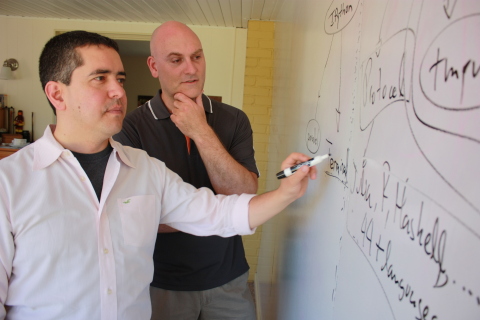 Three foundations pledged $6M over the next three years to Project Jupyter, an open-source software project that supports scientific computing and data science across a wide range of programming languages via a large, public, open and inclusive community. Fernando Perez of University of California, Berkeley and Lawrence Berkeley National Laboratory and Brian Granger of California Polytechnic University, San Luis Obispo will lead the project at their institutions. Perez and Granger’s efforts with Project Jupyter are the result of their work developing IPython, a popular user interface for interactive computing across multiple programming languages.
Three foundations pledged $6M over the next three years to Project Jupyter, an open-source software project that supports scientific computing and data science across a wide range of programming languages via a large, public, open and inclusive community. Fernando Perez of University of California, Berkeley and Lawrence Berkeley National Laboratory and Brian Granger of California Polytechnic University, San Luis Obispo will lead the project at their institutions. Perez and Granger’s efforts with Project Jupyter are the result of their work developing IPython, a popular user interface for interactive computing across multiple programming languages.
- Login to post comments
12 Students Picked to Work on OpenMRS Projects as Part of the Google Summer of Code 2018 Program
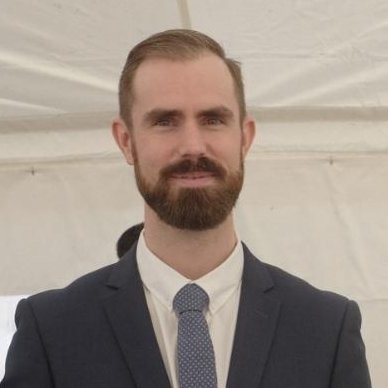
Congratulations and a warm welcome to the 12 students selected for Google Summer of Code 2018, and extended thanks to our fantastic group of OpenMRS project mentor volunteers, as well as all students that submitted applications this year! A total of 1,264 students from 64 different countries have been accepted to work with more than 200 open source projects for GSoC 2018. Since 2007, OpenMRS has enjoyed participating in this great program, and we’re thrilled to be involved again this year, marking our 12th year of participation. We’re looking forward to working with a diverse set of students and mentors across a range of exciting and impactful projects.
- Login to post comments
2020 Guide to Laboratory Informatics and Information Systems Released
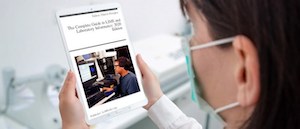 The latest edition of the longtime industry reference guide to systems, vendors, information and resources concerning laboratory data management has been made available to the public. Always free and accessible as an online ebook or .pdf download, the Guide contains the latest updated content. Originally simply a listing of available LIMS and LIMS vendors with information about their products and services and, importantly, their pricing, the Guide has expanded over the last decade or so to provide a great deal of information and resources relating to data management for laboratories.
The latest edition of the longtime industry reference guide to systems, vendors, information and resources concerning laboratory data management has been made available to the public. Always free and accessible as an online ebook or .pdf download, the Guide contains the latest updated content. Originally simply a listing of available LIMS and LIMS vendors with information about their products and services and, importantly, their pricing, the Guide has expanded over the last decade or so to provide a great deal of information and resources relating to data management for laboratories.
- Login to post comments
3 Global Health IT Takeaways You Need to Know - Reflections from ONC 3rd Interoperability Forum
 The Office of the National Coordinator for Health IT (ONC) engages in several global health IT projects from a United States government perspective. ONC works with global counterparts to share experiences, and ensure alignment between global interoperability efforts and the United States' approaches to interoperability. This includes working through worldwide partnerships, bi-lateral and multi-lateral engagements, global networks, and memoranda of understanding. Through these engagements, we focus on advancing common health data standards for global interoperability, enhancing individuals' access to their data, progressing healthcare providers' experiences, and improving factors associated with transparency and competition.
The Office of the National Coordinator for Health IT (ONC) engages in several global health IT projects from a United States government perspective. ONC works with global counterparts to share experiences, and ensure alignment between global interoperability efforts and the United States' approaches to interoperability. This includes working through worldwide partnerships, bi-lateral and multi-lateral engagements, global networks, and memoranda of understanding. Through these engagements, we focus on advancing common health data standards for global interoperability, enhancing individuals' access to their data, progressing healthcare providers' experiences, and improving factors associated with transparency and competition.
- Login to post comments
3-D Printing Offers Quick, Cost-effective Solution to Help Train Aspiring Nurses
 As a regular attendee of conferences on healthcare simulation around the world, Dr. Lori Lioce was already well aware of the growing trend of using 3-D printing to create task trainers – clinical simulators that allow nursing students to repeatedly practice a specific skill in preparation for providing healthcare in the real world. What she needed was access to the technology. So the clinical associate professor in the College of Nursing at The University of Alabama in Huntsville (UAH) turned to Norven Goddard, a research scientist at UAH’s Systems Management and Production (SMAP) Center, for help.
As a regular attendee of conferences on healthcare simulation around the world, Dr. Lori Lioce was already well aware of the growing trend of using 3-D printing to create task trainers – clinical simulators that allow nursing students to repeatedly practice a specific skill in preparation for providing healthcare in the real world. What she needed was access to the technology. So the clinical associate professor in the College of Nursing at The University of Alabama in Huntsville (UAH) turned to Norven Goddard, a research scientist at UAH’s Systems Management and Production (SMAP) Center, for help.
- Login to post comments
3D Design Contest for Medical Tools in Africa
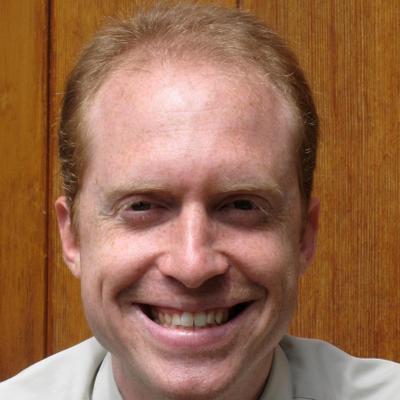 The moment the open source RepRap 3D printer was created, its potential for helping the developing the world was evident. The distributed digital production of open source appropriate technology can make a real difference. Research in this area has been heating up with numerous applications from the Enabling the Future's prosthetic hands, to the Waterscope microscope, to more mundane things like organic farm tools. The ReFab Dar project hopes to accelerate this trend. It is a pilot program that explores how plastic waste can power entrepreneurship using 3D printers in Tanzania. They have built on the early work done by the Michigan Tech Open Sustainability Technology Laboratory's efforts with open source recyclebots to turn plastic waste into 3D printing filament and then into high-value products...
The moment the open source RepRap 3D printer was created, its potential for helping the developing the world was evident. The distributed digital production of open source appropriate technology can make a real difference. Research in this area has been heating up with numerous applications from the Enabling the Future's prosthetic hands, to the Waterscope microscope, to more mundane things like organic farm tools. The ReFab Dar project hopes to accelerate this trend. It is a pilot program that explores how plastic waste can power entrepreneurship using 3D printers in Tanzania. They have built on the early work done by the Michigan Tech Open Sustainability Technology Laboratory's efforts with open source recyclebots to turn plastic waste into 3D printing filament and then into high-value products...
- Login to post comments
40 Healthcare Apps for Clinicians and Consumers to Know
It seems like every week in 2015 — if not most days — brought news of a new healthcare startup company whose app garnered millions in early funding. Not all of these apps will take off, and many are still vying to snag the dominant spot in their respective categories. For example, we don't yet know who will become the 'Uber of healthcare' yet, but a handful of companies with clever names and eye-catching platforms are aggressively grappling for the title. The same can be said for apps in the telehealth, prescription management, physician reference, patient portal and house call categories. Here are 40 apps to know from both the provider and patient sides, some of which just might end up edging out the rest come 2016...
- Login to post comments
5 Reasons Professors Should Encourage Students to Get Involved in Open Source Projects
 I've been supporting student participation in humanitarian free and open source software (HFOSS) projects for over a decade. I've seen students get motivated and excited by working in a professional community while they learn and mature professionally. Out of the many reasons for supporting student participation in open source, here are five of the most compelling reasons...
I've been supporting student participation in humanitarian free and open source software (HFOSS) projects for over a decade. I've seen students get motivated and excited by working in a professional community while they learn and mature professionally. Out of the many reasons for supporting student participation in open source, here are five of the most compelling reasons...
- Login to post comments
6 Reasons People with Disabilities Should Use Linux
 Often, when issues of accessibility and assistive technology are brought up among people with disabilities, the topics center around the usual issues: How can I afford this device? Is it available for me? Will it meet my needs? How will I receive support? Open source solutions, including any Linux-based operating system, are rarely, if ever, considered. The problem isn't with the solution; instead, it is a result of lack of information and awareness of FOSS and GNU/Linux in the disability community, and even among people in general. Here are six solid reasons people with disabilities should consider using Linux...
Often, when issues of accessibility and assistive technology are brought up among people with disabilities, the topics center around the usual issues: How can I afford this device? Is it available for me? Will it meet my needs? How will I receive support? Open source solutions, including any Linux-based operating system, are rarely, if ever, considered. The problem isn't with the solution; instead, it is a result of lack of information and awareness of FOSS and GNU/Linux in the disability community, and even among people in general. Here are six solid reasons people with disabilities should consider using Linux...
- Login to post comments
A Consulting Firm Transition to Open Source Health Software (Part 2 of 2)
 The best hope for sustaining HLN as an open source vendor is the customization model: when an agency needs a new feature or a customized clinical decision support rule, it contracts with HLN to develop it. Naturally, the agency could contract with anyone it wants to upgrade open source software, but HLN would be the first place to look because they are familiar with software they built originally. Other popular models include offering support as a paid service, and building proprietary tools on top of the basic open source version (“open core”). The temptation to skim off the cream of the product and profit by it is so compelling that one of the most vocal stalwarts of the open source process, MariaDB (based on the popular MySQL database) recently broke radically from its tradition and announced a proprietary license for its primary distinguishing extension.
The best hope for sustaining HLN as an open source vendor is the customization model: when an agency needs a new feature or a customized clinical decision support rule, it contracts with HLN to develop it. Naturally, the agency could contract with anyone it wants to upgrade open source software, but HLN would be the first place to look because they are familiar with software they built originally. Other popular models include offering support as a paid service, and building proprietary tools on top of the basic open source version (“open core”). The temptation to skim off the cream of the product and profit by it is so compelling that one of the most vocal stalwarts of the open source process, MariaDB (based on the popular MySQL database) recently broke radically from its tradition and announced a proprietary license for its primary distinguishing extension.
- Login to post comments
A Look at Open Source Image Recognition Technology
 Image recognition technology promises great potential in areas from public safety to healthcare...At the Supercomputing Conference in Denver last year, I discovered an interesting project as I walked the expo floor. A PhD student from Louisiana State University, Shayan Shams, had set up a large monitor displaying a webcam image. Overlaid on the image were colored boxes with labels. As I looked closer, I realized the labels identified objects on a table. Of course, I had to play with it. As I moved each object on the table, its label followed. I moved some objects that were off-camera into the field of view, and the system identified them too.
Image recognition technology promises great potential in areas from public safety to healthcare...At the Supercomputing Conference in Denver last year, I discovered an interesting project as I walked the expo floor. A PhD student from Louisiana State University, Shayan Shams, had set up a large monitor displaying a webcam image. Overlaid on the image were colored boxes with labels. As I looked closer, I realized the labels identified objects on a table. Of course, I had to play with it. As I moved each object on the table, its label followed. I moved some objects that were off-camera into the field of view, and the system identified them too.
- Login to post comments
A Perspective of Open Source Licensing Models for the Health Care Industry
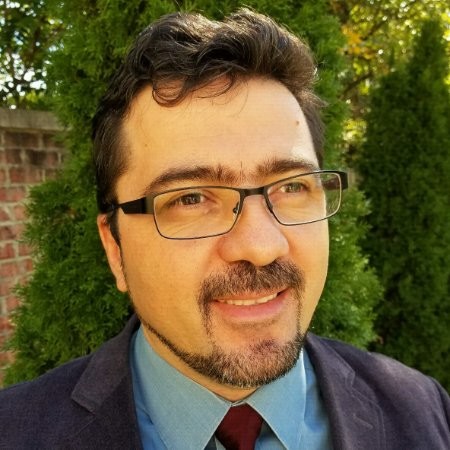 Recently, I've had several interesting conversations about how business models based on open source technologies apply to the healthcare industry. While a lot has been written on the subject, I aim to provide a concise summary and some of my personal perspectives on the matter. This article discusses the definition of open source technology and licensing models; a second article will discuss governance models and applications in healthcare...In reality, it's hard to talk about open source licensing without talking about intellectual property (IP) and copyright. Copyright sums up the rights and obligations that the rightful owner associates with the work. The license describes the rights and obligations of any and everyone else, and can be as broad or as limited as the owner chooses.
Recently, I've had several interesting conversations about how business models based on open source technologies apply to the healthcare industry. While a lot has been written on the subject, I aim to provide a concise summary and some of my personal perspectives on the matter. This article discusses the definition of open source technology and licensing models; a second article will discuss governance models and applications in healthcare...In reality, it's hard to talk about open source licensing without talking about intellectual property (IP) and copyright. Copyright sums up the rights and obligations that the rightful owner associates with the work. The license describes the rights and obligations of any and everyone else, and can be as broad or as limited as the owner chooses.
- Login to post comments
A Primer on the Open Source Movement from a Health Care Perspective
 Open source, in myriad forms, has emerged as a significant development model that drives both innovation and technological dispersion. Ignore it at your peril, as did the major computer companies destroyed or totally remade by Linux and free software, or encyclopedia publishers by Wikipedia, or journalists and marketers by social media. The term "open source" was associated first with free software, but it goes far beyond software now. People around the world use open hardware, demand open government, share open data, and--yes--pursue open health. The field of health, in particular, will be transformed by open source principles in software, in research, in consultations and telemedicine, and in the various forms of data sharing all these processes call for.
Open source, in myriad forms, has emerged as a significant development model that drives both innovation and technological dispersion. Ignore it at your peril, as did the major computer companies destroyed or totally remade by Linux and free software, or encyclopedia publishers by Wikipedia, or journalists and marketers by social media. The term "open source" was associated first with free software, but it goes far beyond software now. People around the world use open hardware, demand open government, share open data, and--yes--pursue open health. The field of health, in particular, will be transformed by open source principles in software, in research, in consultations and telemedicine, and in the various forms of data sharing all these processes call for.
- Login to post comments